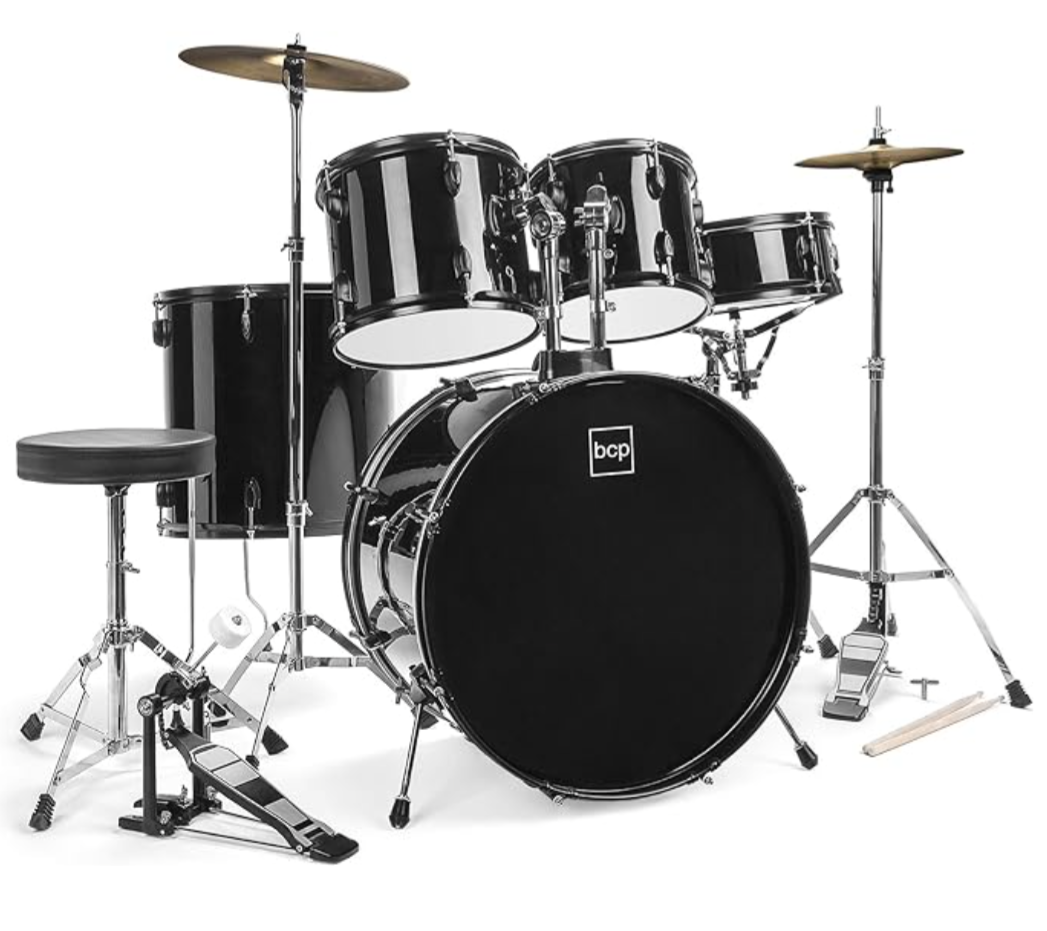
Becoming a better drummer is not just about hitting the drums harder or faster; it’s about understanding rhythm, improving technique, and continuously learning. Whether you are a drum enthusiast or a beginner, this guide will provide you with actionable tips on how to become a better drummer. By focusing on key areas of practice and development, you’ll be able to elevate your drumming skills and make your beats more captivating.
1. Understand the Basics of Drumming
Before you can become a better drummer, it’s essential to have a solid foundation. Understanding the basics of drumming will set you up for long-term success.
Learn Proper Stick Grip
Your stick grip affects your control and the sound you produce. The two most common grips are the matched grip and the traditional grip.
- Matched Grip: Both hands hold the drumsticks in the same manner. It’s easier to learn and more versatile.
- Traditional Grip: One hand holds the stick differently, commonly used in jazz and marching bands. It offers more control over delicate rolls and ghost notes.
Master Basic Rudiments
Rudiments are the building blocks of drumming. Start with the basic ones like the single stroke roll, double stroke roll, and paradiddle. These techniques will improve your hand coordination and speed.
Understand Time Signatures and Counting
Learning to read drum notation and understanding time signatures will help you play along with various musical styles. Practice counting out loud while playing to internalize the rhythm.
2. Develop a Regular Practice Routine
Consistency is key when it comes to becoming a better drummer. A structured practice routine will help you improve steadily.
Set Realistic Goals
Set short-term and long-term goals that are achievable. For example, aim to master a particular rudiment within a week or learn a new song each month.
Warm-Up Exercises
Start each practice session with warm-up exercises to prepare your muscles and improve your technique. Simple stick control exercises or rudiments played at a slow tempo are excellent for warming up.
Use a Metronome
A metronome is a crucial tool for developing timing and rhythm. Practice playing along with the metronome to ensure you stay in time, especially at different tempos.
3. Improve Your Footwork
Good footwork is fundamental to becoming a better drummer. Your bass drum and hi-hat control add depth and complexity to your drumming.
Bass Drum Technique
Develop a strong and consistent bass drum technique by practicing heel-down and heel-up techniques. Experiment with different pedal adjustments to find what works best for you.
Hi-Hat Control
Learn to use the hi-hat pedal to create dynamic sounds. Practice playing the hi-hat with your foot while using your hands for other elements of the drum kit.
4. Expand Your Musical Vocabulary
To become a better drummer, it’s important to have a diverse musical vocabulary. This means being comfortable with different styles and genres.
Listen to Various Genres
Expose yourself to a wide range of music. Listen to rock, jazz, blues, funk, and world music to understand different drumming styles and techniques.
Transcribe Drum Parts
Transcribing drum parts from your favorite songs will help you understand how professional drummers construct their beats. It also improves your ability to play by ear.
Learn Different Styles
Take lessons or watch tutorials on different drumming styles. Learning jazz drumming can improve your swing feel, while funk drumming can enhance your groove.
5. Focus on Dynamic Control
Dynamics are what make drumming expressive. Learning to control the volume and intensity of your playing will make your drumming more interesting.
Practice Ghost Notes
Ghost notes are softer notes played between the main beats. They add texture and complexity to your rhythms. Practice incorporating ghost notes into your grooves.
Play with Dynamics
Experiment with playing softly (piano) and loudly (forte). Practice increasing and decreasing your volume smoothly to create dynamic contrast in your drumming.
6. Play Along with Music
One of the best ways to become a better drummer is to play along with music. It helps you apply what you’ve learned in a musical context.
Use Play-Along Tracks
There are many play-along tracks available that come without the drum parts. These tracks allow you to be the drummer and practice keeping time with the music.
Record Yourself
Recording yourself while playing along with music can provide valuable feedback. Listen to the recordings to identify areas where you can improve.
7. Seek Feedback and Continue Learning
Never stop learning. Drumming is a journey, and there is always something new to discover.
Take Drum Lessons
Consider taking lessons from an experienced drum teacher. They can provide personalized feedback and help you overcome specific challenges.
Join a Drumming Community
Joining a drumming community, either online or in person, can provide support and inspiration. Share your progress, ask for advice, and learn from others.
Attend Workshops and Clinics
Attend drumming workshops and clinics to learn from professional drummers. These events often provide insights into advanced techniques and industry trends.
Why Amazon is the Best Place to Buy Drums
When it comes to purchasing drums, Amazon stands out as the best place for several reasons:
- Wide Selection: Amazon offers a vast selection of drum kits, cymbals, and accessories from leading brands. You can browse through various options to find exactly what you need.
- Customer Reviews: Read genuine customer reviews to make informed decisions. Reviews provide insights into the quality and performance of the products.
- Convenience: Shopping on Amazon is convenient. You can compare prices, read product descriptions, and make purchases from the comfort of your home.
- Fast Shipping: Amazon’s fast shipping options ensure that you receive your drum gear quickly. This is especially useful if you need equipment for an upcoming gig or practice session.
Check out some of the best drums on Amazon here.
Call to Action
Ready to take your drumming to the next level? Start by setting up a regular practice routine, exploring different styles, and investing in quality drum gear. Remember, consistency and dedication are key to becoming a better drummer.
For more insights and drumming tips, don’t forget to subscribe to our newsletter and stay updated with the latest drumming techniques and industry news.
Becoming a proficient drummer is a rewarding journey. By following these tips and committing to continuous improvement, you’ll find yourself mastering the beat and captivating your audience in no time. Happy drumming!






